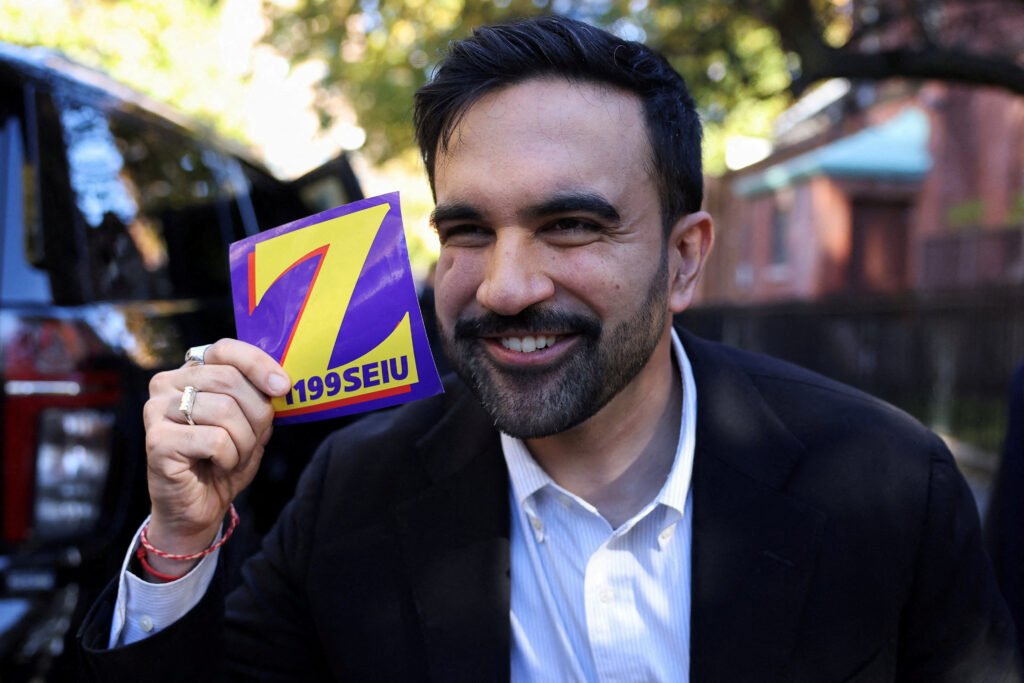Zohran Mamdani’s historic win as New York’s first Muslim and South Asian mayor-elect marks a leftward shift in city politics, promising bold reforms on housing, taxes, and affordability.
By Imran Malik | November 5, 2025
NEW YORK — Zohran Mamdani, a 34-year-old state assemblyman from Queens and the son of Ugandan-Indian immigrants, made history Tuesday night by becoming New York City’s first Muslim and South Asian mayor-elect — a political milestone that redefines the city’s power map and signals a dramatic leftward shift in its governance.
With 88% of votes counted, Mamdani, a Democrat and self-proclaimed democratic socialist, secured 50.3%, defeating former Governor Andrew Cuomo, who ran as an independent and garnered 41.6%, according to the Associated Press. Republican Curtis Sliwa trailed with 7.2%.
Mamdani’s stunning rise was powered by a campaign centered on affordability, inclusivity, and grassroots mobilization. His movement energized communities often ignored by citywide campaigns — particularly Muslims, South Asians, and working-class New Yorkers. He visited more than 50 mosques, hosted multilingual voter drives, and held late-night rallies with taxi drivers at LaGuardia Airport, a nod to his earlier activism for driver debt relief.
But beyond symbolism, Mamdani’s victory ushers in a bold policy era. His platform includes higher taxes on the wealthy and corporations, a rent freeze for two million tenants, free city buses, and universal childcare — plans estimated to cost over $10 billion. Critics warn his vision could strain New York’s finances, while supporters hail it as the city’s long-overdue “economic reset.”
“This is a win for every New Yorker who’s ever felt unseen,” Mamdani told cheering supporters in Jackson Heights. “We will build a city where everyone can afford to live — and afford to dream.”
His victory also comes against a backdrop of rising Islamophobia and political attacks that sought to paint him as extreme. Mamdani countered them with empathy and resolve, reminding voters of New York’s diversity and resilience.
As the city’s 111th mayor, Mamdani now faces the test of turning his progressive promises into practical governance — a task as immense as the city he’s about to lead.



5 Comments
Nice blog right here! Additionally your site loads up very fast! What web host are you the use of? Can I am getting your associate link in your host? I desire my website loaded up as quickly as yours lol
Thank you for another informative site. Where else could I get that kind of information written in such a perfect way? I have a project that I’m just now working on, and I’ve been on the look out for such information.
You must take part in a contest for probably the greatest blogs on the web. I will suggest this website!
Lovely just what I was looking for.Thanks to the author for taking his clock time on this one.
Sweet internet site, super design, rattling clean and utilize friendly.